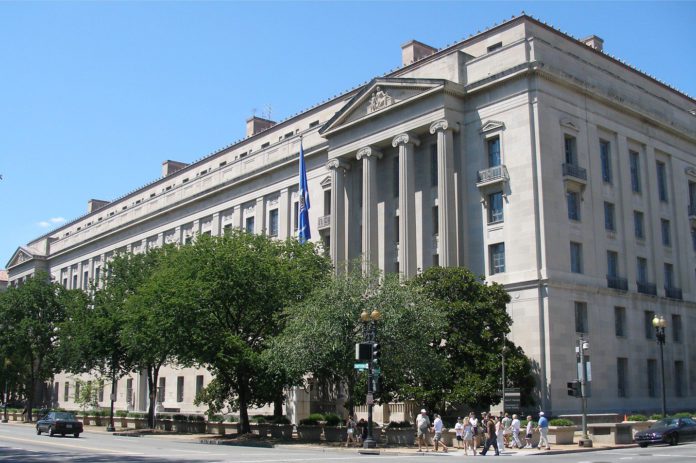

The Justice Department this month gave companies the clearest signal yet that it is living up to its promise to take a tougher stance on HR-related antitrust issues.
On April 3, the DOJ announced it reached a settlement with a pair of railroad industry companies over what it called a “no-poach” agreement between them. This was the first major HR-related antitrust case the DOJ has resolved since it issued joint guidance with the Federal Trade Commission on such cases in October 2016. That guidance warned employers the federal government would not only pursue civil actions against employers for no-poach and wage-fixing agreements — which it had long done — but also criminal charges. While the defendant employers in the new settlement avoided criminal charges, the DOJ’s action confirms for employers that it is taking serious action on HR-related antitrust violations.
No-poach agreements are pacts, both formal and informal, between competing employers to not solicit, recruit or hire each other’s employees. The FTC and DOJ say “naked” no-poach agreements — which occur without a legitimate business reason — deprive workers of employment opportunities in violation of the Sherman Act.
According to the DOJ lawsuit, rail equipment suppliers Knorr-Bremse AG and Westinghouse Air Brake Technologies Corporation, also known as Wabtec, entered into agreements not to compete for each other’s employees between 2009 and 2016. The agreements included a third company, Faively Transport S.A., which Wabtec acquired in November 2016 and in doing so solidified Knorr and Wabtec as two of the world’s largest rail suppliers. The department filed the complaint the same day it proposed the settlement.
“Today’s complaint is part of a broader investigation by the Antitrust Division into naked agreements not to compete for employees — generally referred to as no-poach agreements,” said Assistant Attorney General Makan Delrahim of the Justice Department’s Antitrust Division in a press release. He said the Knorr-Wabtec settlement “will restore competition for employees in the U.S. rail industry.”
Knorr and Wabtec dodged the bullet of criminal charges, as the alleged misconduct predated the government’s guidance announcing it would pursue no-poach agreements as felonies. But the DOJ has apparently been developing several criminal no-poach cases against other defendants; Delrahim said in a January speech that those cases might be announced in the months to come.
Both the DOJ and the FTC have enforcement jurisdiction on wage-fixing and no-poach agreements. But of the agencies, employers should watch for new developments coming from the DOJ, which is running lead on these types of violations, said antitrust lawyer and Wheeler Trigg O’Donnell partner Kathryn Reilly. “The Department of Justice has really taken ownership of this issue” as well as an aggressive stance toward these violations, Reilly said.
The DOJ under President Donald Trump is showing continuity from the Obama administration in terms of antitrust enforcement, with the action against Knorr and Wabtec being the latest example. But the consent decree itself shows a change in tack with how the new administration might resolve these cases, Reilly said.
The proposed settlement, which doesn’t levy financial penalties on the companies, generally prohibits Knorr and Wabtec from entering, maintaining or enforcing no-poach agreements with any other companies. They each must appoint an antitrust compliance officer, and they would also have to agree to notification and compliance requirements to prevent any no-poach agreements they might enter in the future.
The consent decree’s requirements will sunset at seven years, but after five years, the DOJ can terminate them if the agency deems them “no longer … necessary or in the public interest.” The willingness to terminate a consent decree early is a departure from the DOJ under Obama, Reilly said.
Also, the department will make exceptions for reasonable no-poach agreements that are “ancillary to a legitimate business collaboration.” Reilly said it’s reassuring to her clients that the government recognizes some contexts, like joint ventures, can justify companies agreeing not to compete for each other’s personnel.
One eyebrow-raising detail in the consent decree, however, is its “Defendants’ Cooperation” clause, which compels Knorr and Wabtec to provide testimony or information regarding any other no-poach agreements between them and another party. Reilly said that could be a sign of a larger, ongoing investigation into no-poach agreements in Knorr and Wabtec’s industry, in which the department could tap them as resources.
Companies can look at the Knorr-Wabtec consent decree as a template for the DOJ’s future civil resolutions in this area, Reilly said. But the other major takeaway from this case, she added, is the importance of compliance training. “Everyone needs to become sensitized to this issue,” she said. Potentially unlawful no-poach agreements don’t just happen at the top of the company but also in HR or among mid-level managers with hiring power.
Those personnel need to be educated on what they can and can’t say to industry competitors regarding recruitment, she said.
Some of the riskiest territory for no-poach agreements is in trade association gatherings, where camaraderie among the professionals can obscure the fact that they work for competitors. In those settings, it’s more likely company reps might say to each other that they won’t compete for each other’s employees, Reilly said.
She noted that while those informal pacts might pose less of a risk of federal government crackdown, they still leave a company open to private litigation over anticompetitive behavior.
— Doug Chartier

